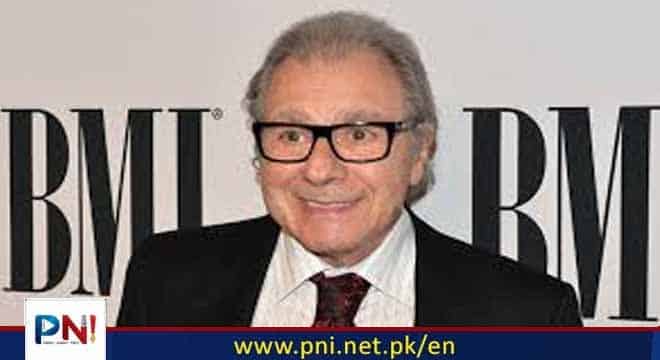ISLAMABAD, JULY 01 (ONLINE): “Let me ask you something,” composer Lalo Schifrin told me a few years ago during a long conversation that, sadly, would be our last. “When you write your articles, do you require a piano? I imagine you don’t, because you already have all the words that you need in your mind, which you then elaborate with your knowledge of grammar and syntax, right? It’s exactly the same for me. I don’t need a musical instrument in order to compose a piece. The notes are in my head.”
I had the privilege of interviewing Schifrin, who died Thursday at 93, multiple times during the past three decades. The most memorable meeting with the Emmy-nominated (Mission: Impossible theme) and Oscar-nominated composer (Sting II, The Amityville Horror) was a leisurely lunch at one of his favorite Beverly Hills restaurants when I was still in my early 20s and just getting started in journalism.
Walter Scott Jr., Vocalist of The Whispers, Dies at 81
We had much in common. We were both Argentine immigrants living in Los Angeles. Like my dad, who was born three years before him, Schifrin was the son of a Jewish father and a Catholic mother. We also shared an eclectic passion for all kinds of music: classical, tango, jazz. Even then, I knew that Schifrin had been the piano player in the iconic ensembles of two 20th-century pioneers: Astor Piazzolla and Dizzy Gillespie.
Most importantly, I was a devoted fan of his soundtrack music from the age of 7. My older brother had purchased a copy of the Mission: Impossible soundtrack, which I borrowed regularly and played on my one-speaker turntable.
It was around that time when I discovered the silky, eternally melancholy sound that would haunt my pre-teen years and eventually inspire me to become a music writer: the jazz-infused, bossa nova-friendly universe of Schifrin and Burt Bacharach, John Barry and Henry Mancini that evoked in me a profound sense of nostalgia for landscapes that I didn’t even know existed but could picture vividly in my imagination. I hummed Mancini’s “Hatari” theme as I tried to fall asleep at night, and listened to the Carpenters’ luminous “Bacharach Medley” in the cassette deck of my father’s car as he drove us to the movies across the cobblestone streets of the Buenos Aires suburbs.
Schifrin smiled warmly when I described to him my fascination with the Mission: Impossible record, and my favorite track in it: “Cinnamon,” a two-minute miniature that glides effortlessly as it alternates its dreamy melody with a jazz solo. And “Danger,” the exotic theme that conjures up jaded spies sitting in European cafés. Later in life, I told Schifrin, I gravitated to bands that were clearly inspired by his work: Saint Etienne, Swing Out Sister, Portishead and Pizzicato Five.
But no matter how many times I pressed him, Schifrin never revealed his recipe for making music that was so incredibly cosmopolitan and harmonically sophisticated.
Or stylistic boundaries, either. I had seen Schifrin conducting Beethoven’s 6th in Buenos Aires and followed his extensive work in the classical field as musical director of the now-defunct Glendale Symphony Orchestra. I also received copies of the albums that he released on his own label, Aleph Records — from a luminous Latin Jazz Suite to his epic series of Jazz Meets the Symphony. Still, it is his soundtrack work, which continues to be reissued well into the 21st century, that best sums up his genius for avant-garde orchestrations. Schifrin’s finest moments as a film composer — The Cincinnati Kid, Cool Hand Luke, Bullitt and The Fox, to name a few — are as transcendent as the works of Nino Rota, Ennio Morricone or Michel Legrand.
“We were all friends,” he recalled when I asked about like-minded musicians like Bacharach and Antonio Carlos Jobim. “We would meet for lunch often. Piazzolla and [Brazilian guitarist] Luiz Bonfá were also there. We all worked on our respective projects, but there was also time to enjoy life.”
Lately, I have developed a slight obsession with the second half of “The First Snow Fall” from the Bullitt soundtrack — the moment when the initial, easy-listening tune suddenly changes gears and gains gravitas with a psychedelic electric piano solo anchored on a rock-solid drum beat.
“My priority is to keep working,” he told me over the phone when he was 86 and had just won an honorary Academy Award in 2019. “I’m interested in making music, not in winning any Oscars. Those awards and competitions occupy a secondary place in my life. I don’t plan to retire, and my creativity is still in full bloom. The more I learn, the more I become aware of the many things that I’m still ignorant about.”
Follow the PNI Facebook page for the latest news and updates.








